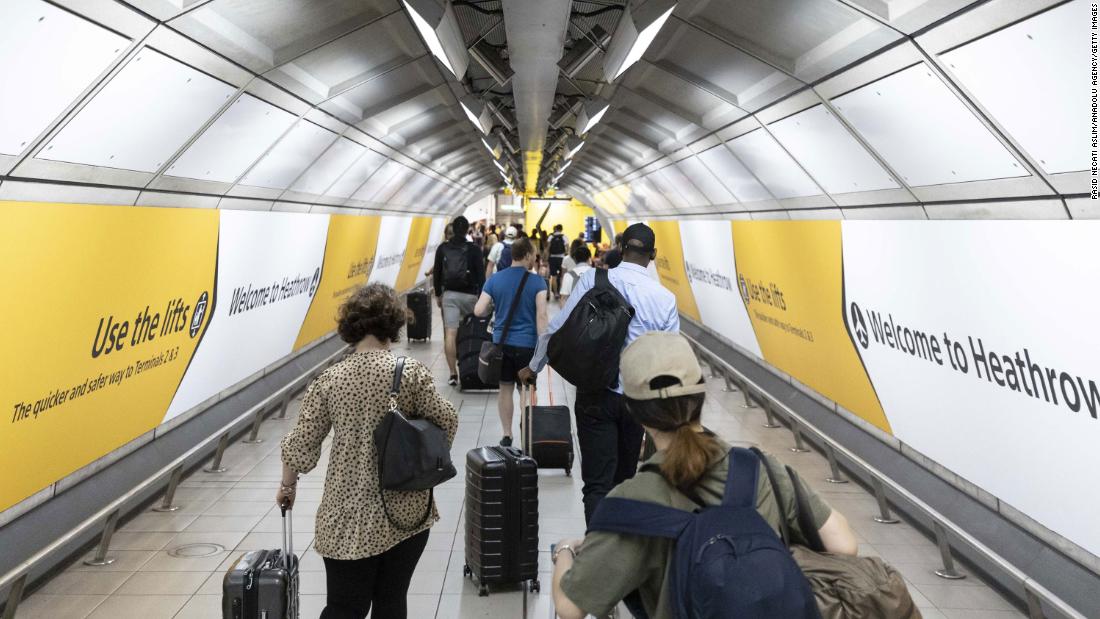Overcrowding and staff shortages were among the factors contributing to longer-than-expected wait times at airport security, lost luggage, delayed and canceled flights and other hurdles as many travelers eagerly set off on their first post-pandemic vacations.
Now, though, the airport will be extending that restriction until at least October 29.
“We want to remove the cap as soon as possible, but we can only do so when we are confident that everyone operating at the airport has the resources to deliver the service our passengers deserve,” Heathrow’s COO, Ross Baker, said in a press statement.
The October 29 date covers the UK’s school half term, a popular vacation period.
The same report also noted that air traffic to western Europe had tripled since the same period in 2019.
In its announcement, Heathrow’s representative noted that several other airports, like Frankfurt, Amsterdam’s Schiphol and London Gatwick, have also imposed passenger number caps. Schiphol’s also lasts through the end of October.
What does this mean for travelers, though?
Instead, the responsibility will fall to airlines.
People who have already booked their tickets should assume their reservations are confirmed unless they hear directly from the airline about changes or cancellations.
They will also be able to make new bookings, although flights may already be full and some airlines will likely reduce their flight schedules. It is likely that the reduced number of available seats and the possible panic of travelers rushing to secure reservations could lead to considerable fare hikes.
One other thing to note: according to Heathrow, it’s possible the cap could be lifted before October 29 if there is a “sustained picture of better resilience and a material increase in resourcing levels.”
Top photo by Rasid Necati Aslim/Anadolu Agency via Getty Images.
